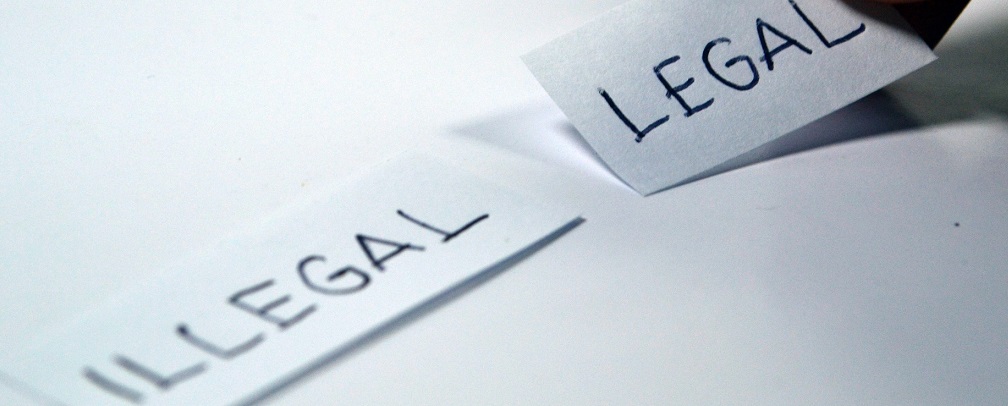
Whistleblowers and Dodd-Frank
It is fair to say that the Dodd-Frank Wall Street Reform and Consumer Protection Act (Dodd-Frank), signed into law six years ago, on July 21, 2010, is not without controversy.
Some members of Congress continue to call for simplifying or replacing the bill while retaining penalties for financial fraud and other illegal activities. For example, Representative Jeb Hensarling’s Financial CHOICE Act proposal, calls for the “the toughest penalties in history for financial fraud, self-dealing, and deception” (Pickholz Law Offices, 2016).
Change, if any, will almost certainly depend on the outcome of the November 2016 presidential and congressional elections. However, whistleblower protections will likely remain, with some version of the current language: “no employer may discharge, demote, suspend, threaten, harass, directly or indirectly, or in any other manner discriminate against, a whistleblower in the terms and conditions of employment because of any lawful act done by the whistleblower ….”
As Dodd-Frank enters its seventh year, it will be interesting to see if the Supreme Court takes up the issue of whether or not Dodd-Frank whistleblower provisions apply to employees who have reported their concerns internally but not externally to the U.S. Securities and Exchange Commission (SEC).
The issue is caused by seemingly contradictory language in the law. One section of Dodd-Frank defines a whistleblower as “any individual who provides, or 2 or more individuals acting jointly who provide, information relating to a violation of the securities laws to the Commission, in a manner established, by rule or regulation, by the Commission.” Another section prohibits retaliation against a whistleblower who provides information to the Commission or who initiates, testifies in, or assists “in any investigation or judicial or administrative action of the Commission….”
We highlighted this issue several years ago in “Dodd-Frank Whistleblowers and Ethics Hotlines.” At that time, several U.S. district court judges had ruled that employees who report such suspicions internally are protected by Dodd-Frank, but the U.S. Court of Appeals for the Fifth Circuit had recently ruled otherwise (see Asadi v. G.E. Energy (USA), L.L.C.).
Last year, the U.S. Court of Appeals for the Second Circuit contradicted the fifth circuit court. In Berman v. Neo@Ogilvy LLC, the second circuit court deferred to the SEC’s interpretation, namely that whistleblowers qualify for Dodd-Frank anti-retaliation protections without needing to report to the Commission (Costello, 2016).
With two circuit courts of appeal now contradicting one another, it is possible that the Supreme Court will step in when it returns to business in October 2016. Whether it does or not, and no matter the outcome, retaliation against whistleblowers will remain a bad idea.
Costello quotes Amy Rudolph of the American Bar Association: “It’s not as if retaliation is okay in one circuit and not another.” Even in jurisdictions where courts have adopted a more restrictive view of Dodd-Frank’s protections, “an employer may still be subject to liability under SOX” for actions taken against whistleblowers. In the end, “retaliation is still a bad idea, whether it is actionable under Dodd-Frank or not, as it can affect the integrity of an employer’s internal compliance systems.”
Ethical Advocate provides comprehensive ethics and compliance solutions, including ethics and compliance training and confidential and anonymous hotlines, meeting regulatory and reporting needs. Please contact us for more information.
References:
Asadi v. G.E. Energy (USA), L.L.C., 720 F.3d 620 (5th Cir. 2013). http://www.ca5.uscourts.gov/opinions%5Cpub%5C12/12-20522-CV0.wpd.pdf
Berman v. Neo@Ogilvy LLC, No. 14-4626 (2d Cir. Sept. 10, 2015). https://www.sec.gov/about/offices/owb/berman-v-neo-ogilvy-llc.pdf
Costello, Sara E. “Circuit Split on Dodd-Frank’s Whistleblower Protections,” American Bar Association Litigation News, Feb. 4, 2016. https://apps.americanbar.org/litigation/litigationnews/top_stories/020416-dodd-frank-whistleblower.html
Dodd-Frank Wall Street Reform and Consumer Protection Act, Public Law 111-203, July 21, 2010. https://www.congress.gov/111/plaws/publ203/PLAW-111publ203.pdf
Pickholz Law Offices. “Proposed Act to Impose the “Toughest Penalties in History for Financial Fraud …,” June 8, 2016. http://pickholzlaw.com/proposed-act-impose-toughest-penalties-history-financial-fraud.html/
